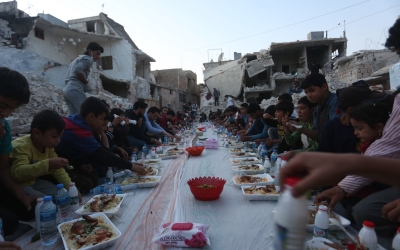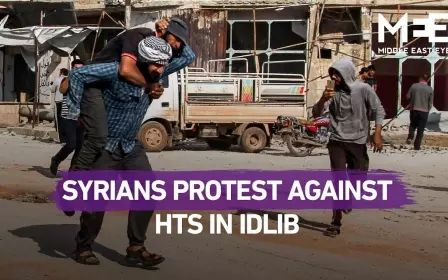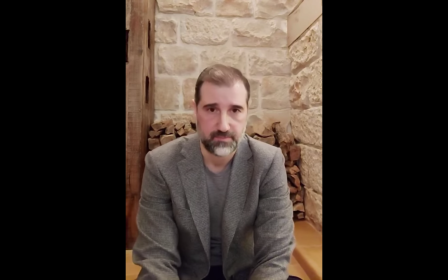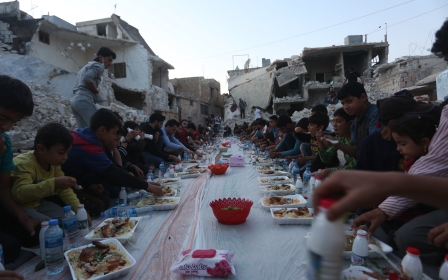Northwest Syria clashes reportedly kill dozens in biggest toll since March truce

An attack by militant rebel forces in northwest Syria sparked clashes that left 48 people dead, the highest toll since the start of a two-month-old ceasefire, an activist group has said.
Fighting had largely ground to a standstill following a 6 March truce in Idlib, the last major opposition stronghold.
The ceasefire came after a fierce month-long Russian-backed government assault that killed hundreds of civilians and forced almost a million to flee.
Before dawn on Sunday, opposition forces mounted an assault on pro-government troops in the Sahl al-Ghab area, killing 35 while losing 13, said the Syrian Observatory for Human Rights.
Opposition forces sustained seven deaths, including from the al-Qaeda-affiliated Hurras al-Deen group, the UK-based Observatory said.
"It's the highest death toll for fighters since the truce came into force," said Observatory chief Rami Abdel Rahman, whose organisation relies on sources inside Syria.
"There had been intermittent clashes and mutual bombardment between both sides before, but this is the most violent attack yet."
Coronavirus fears
The truce, which had been brokered by Russia and rebel backer Turkey, has halted the indiscriminate aerial assaults by government and Russian warplanes and allowed tens of thousands to return to their homes.
It had held despite occasional clashes and bursts of rocket fire between the groups.
Home to some three million people, Idlib is dominated by the Hayat-Tahrir al-Sham group, led by Syria’s former al-Qaeda affiliate.
Hurras al-Deen is among several militant and Turkish-backed opposition groups to also have a presence there.
Hundreds of thousands of people have taken shelter in crowded displacement camps which aid groups fear could be devastated by the coronavirus pandemic.
Syria's war has killed more than 380,000 people and displaced millions since starting in 2011 with the brutal repression of anti-government protests.
Middle East Eye delivers independent and unrivalled coverage and analysis of the Middle East, North Africa and beyond. To learn more about republishing this content and the associated fees, please fill out this form. More about MEE can be found here.





